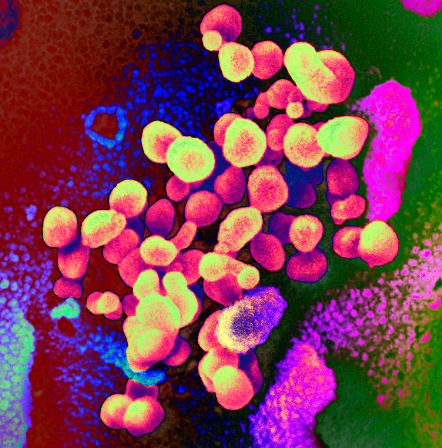'Immune memory' could block COVID
 'Immune memory' may explain why some people do not catch COVID-19.
'Immune memory' may explain why some people do not catch COVID-19.
A British study has found that an immune memory from past coronavirus infections may explain why some people never test positive to COVID-19 despite being in high risk scenarios.
UK researchers tested 58 healthcare workers from hospitals in London, who never tested positive for COVID-19 despite being at very high risk and having other markers of viral infection.
They compared the T-cell responses in this group with those in matched healthcare workers who did develop COVID-19.
They found that the people who escaped infection had stronger T-cell responses, particularly against a part of the virus also found in other coronaviruses known as the replication-transcription complex (RTC).
Past exposure to other coronaviruses may speed up the clearance of SARS-CoV-2 because the immune system remembers viral replication proteins that are highly conserved across coronaviruses.
Many individuals at high risk of exposure to the infectious SARS-CoV-2 virus display negative results with standard diagnostic tests.
Previous research has suggested that exposure to coronaviruses produces memory T-cells that may be effective in attenuating SARS-CoV-2 infection.
It now appears that pre-existing memory T-cells that recognise the proteins of the RTC - a conserved structure involved in viral replication - might facilitate the rapid control of SARS-CoV-2.
Designing vaccines that could mimic this expansion of cross-reactive T cells may offer protection against a range of endemic or emerging coronaviruses, the authors conclude.








 Print
Print